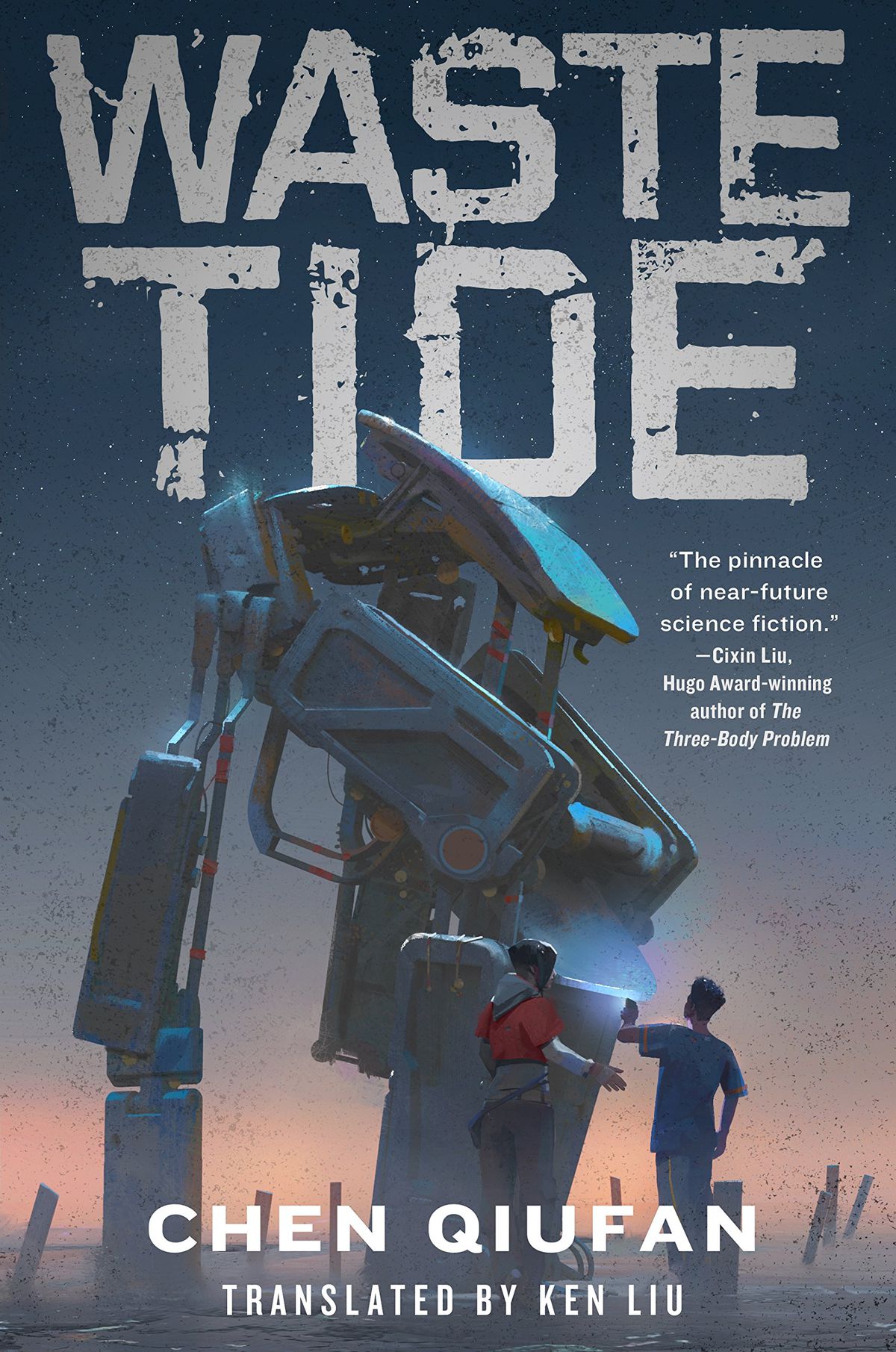In Chinese science fiction author Chen Qiufan’s debut novel Waste Tide, a young woman finds herself transformed and stuck in the midst of a vicious power struggle between factions in the polluted, fictitious Silicon Isle in Guiyu, China. It’s a near-future science fiction thriller that feels pressingly relevant in 2019, about the pressures that advanced capitalism and technology exert on the most vulnerable people on Earth.
Silicon Isle is a dump — literally. It’s where the world drops off all of its electronic waste for recycling, which is handled by generations of workers who are too poor to leave. Everything from cell phones to robots to mechanical sex toys are sorted out here, and the entire region is steeped in poisonous waste that infects the island’s inhabitants.

Chen follows a string of characters as they collide in Silicon Isle. There’s Mimi, one of the many workers who finds herself drawn to Silicon Isle for work; Scott Brandle, an American operative who visits the island to try to arrange a contract on behalf of a green recycling company, TerraGreen Recycling Co. Ltd.; and Chen Kaizong, Scott’s assistant and translator who’s returned to China after moving to the US as a child. Scott has a covert mission on behalf of some shadowy corporate figures: he’s looking for a discarded prosthetic device containing a secret biological weapon, which his benefactors are trying to keep out of sight.
As it turns out, Mimi comes in contact with Scott’s target first. She puts on a helmet discovered by a fellow resident, Brother Wen, only to have something in it pierce her head and infect her with a virus. The virus combines with heavy metals in her brain, collected over years handling waste, to transform her into something strange. When one of the clans that controls Silicon Isle takes notice, she’s nearly killed, but a more forceful and malevolent version of Mimi takes over — first killing a group of enforcers by inhabiting a broken mech, then setting Silicon Isle’s “waste people” on a path toward revolution.
Chen presents a story that’s eerily plausible in 2019. Right now, the tensions between the United States and China are a bit strained at the present moment, and China has experienced its own rapid change as it gains prominence in the world. (One of the side effects being, it no longer needs to take the world’s trash to recycle.)
Chen is extremely familiar with the problems here — he grew up near Guiyu, which is known for being one of the biggest electronic waste dumps in the world — and wrote about how a visit to the place helped inspire the book. His descriptions show off a horrifying landscape:
Everything was shrouded in a leaden miasma, an amalgamation of the white mist generated by the boiling aqua regia in the acid baths and the black smoke from the unceasing burning of PVC, insulation, and circuit boards in the fields and on the shore of the river. The two contrasting colors were mixed by the sea breeze until they could no longer be distinguished, seeping into the pores of every living being.
The book speeds along as each of the characters make their way through Silicon Isle. Scott is searching for the mysterious prosthetic, Kaizong has become infatuated with Mimi, who in turn is trying to keep away from all of the various parties who are after her. She finds it difficult to figure out who to trust: even Brother Wen, a seemingly benevolent figure in her life, is clearly willing to cut her loose if it’ll make his life easier.
The heart of the book is about the desperation of Silicon Isle’s working class. Nobody is there because they really want to be there: they’re bound by debt, family ties, or the inability to leave. In a number of ways, the book reminds me of Paolo Bacigalupi’s The Windup Girl, about how climate change impacts Thailand in the distant, post-oil world. Waste Tide feels like it’s a bit more recognizably plausible as Chen lays out exactly how the world economy has left millions of people behind, trapped in an impoverished state from which they can’t escape.
https://www.theverge.com/2019/5/25/18626394/waste-tide-chen-qiufan-chinese-scifi-science-fiction-class-war-book-review

